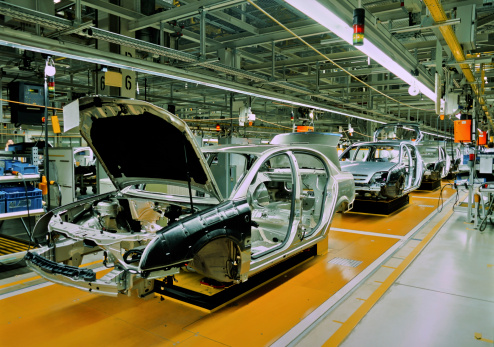Commodities & Metals
The Alcoa of Yesteryear Is Transforming -- for a Much Better Tomorrow
Published:
The aluminum company Alcoa Inc. (NYSE: AA) is transforming. The company you used to know is upgrading itself and making its business model less and less dependent on basic aluminum trade. An aerospace acquisition gets it more and more into components. Efforts have been expanding handily in the auto sector as well to assist with lighter and more fuel-efficient cars and trucks.
Alcoa’s recently announced acquisition of Firth Rixson will add to Alcoa’s aerospace growth with a broader range of jet engine components. The $2.85 billion acquisition was broken out as $2.35 billion in cash and $500 million common stock, with an additional $150 million potential earn-out upside to the deal.
Here is what Alcoa investors get out of this. Firth Rixson will increase Alcoa’s 2013 aerospace revenue by 20%, up to $4.8 billion (versus total company revenue of $23.03 billion). The move is expected to contribute an additional $1.6 billion revenues and $350 million EBITDA in 2016. Alcoa also claims that Firth Rixson’s sales are expected to grow through 2019 at more than double the rate of the global aerospace market. This $2.85 billion, or potential $3 billion, compares to a current market cap of $17.5 billion.
More recent efforts have been made in moving to aluminum truck frames, recently with Ford. Another auto move is making heavy duty truck wheels lighter — supposedly by 47%, which will further help with fuel efficiency. Also, the company has made efforts to compete against the growth of batteries for electric cars. Alcoa and Phinergy were in the news this year about the unveiling of aluminum-air batteries for the electric car market. The ultimate goal is that these will be more dependable and efficient in power, and they can be recycled.
ALSO READ: Why a Boeing 777-300ER Costs $320 Million
When the Firth Rixson deal was announced this last week, shares rose almost 3% to $14.94 (Thursday) and the fell only by one cent on Friday. Stocks of acquirers usually drop when a company announces a buyout. When they rise it is because the investment community can easily and clearly see the benefit, usually in sales, earnings, synergies and other metrics.
Analysts seem to love the recent Firth Rixson acquisition. Morningstar said that the move takes Alcoa further away from Alcoa’s dependence on commodity prices. Goldman Sachs echoed this stance, also calling it potentially transformative. Sterne Agee reiterated its Buy rating on Friday and raised its target to a street-high target price of $18.00.
As Alcoa becomes more of a supplier of major components in the auto industry and in aerospace, the reality is that Chairman and CEO Klaus Kleinfeld will be able to talk more about stronger market segments rather than the past dependence on the alumina market. You probably haven’t seen the last acquisition of a parts or structures player out of Alcoa. The Alcoa of tomorrow is simply not the Alcoa of yesteryear.
While the consensus price target is still closer to $14, versus a $14.93 close on Friday, analysts have been playing catch-up here as Alcoa shares turned around and recovered much faster than most saw coming. Also, keep in mind that Alcoa traded under $10 just a few days before Christmas, so it was a good investor stocking stuffer for a 50% gain in six months.
Does it even matter that Alcoa shares were $30 and even $40 before the Great Recession? Maybe not now, but if Alcoa shares climb to above $17, then the long-term chart reading shows nothing but dead air as resistance all the way up to $20.
ALSO READ: Ten Cities Where Foreign Companies Create the Most Jobs
The average American spends $17,274 on debit cards a year, and it’s a HUGE mistake. First, debit cards don’t have the same fraud protections as credit cards. Once your money is gone, it’s gone. But more importantly you can actually get something back from this spending every time you swipe.
Issuers are handing out wild bonuses right now. With some you can earn up to 5% back on every purchase. That’s like getting a 5% discount on everything you buy!
Our top pick is kind of hard to imagine. Not only does it pay up to 5% back, it also includes a $200 cash back reward in the first six months, a 0% intro APR, and…. $0 annual fee. It’s quite literally free money for any one that uses a card regularly. Click here to learn more!
Flywheel Publishing has partnered with CardRatings to provide coverage of credit card products. Flywheel Publishing and CardRatings may receive a commission from card issuers.
Thank you for reading! Have some feedback for us?
Contact the 24/7 Wall St. editorial team.